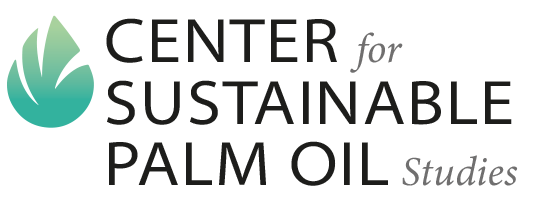
Palm oil is everywhere: in our food, our makeup, and even our vehicles. It strengthens the economies of developing nations, provides a livelihood for smallholder farmers across the world, and to climate’s relief, it does so with increasing sustainability. In February, an increasing number of commentators wrote about sustainable palm oil, the growing role of certification schemes and the need for Europe to work together with palm oil-producing nations to help scale efforts in the sector to make it greener and healthier for the world’s forests, farmers and climate.
Palm Oil and Disinformation:
Early February, Politico, published an article that highlighted the remarkable progress the palm oil sector has made towards sustainability. Between 2009 and 2016, palm oil associated deforestation dropped an impressive 80%. According to the International Institute for Sustainable Development, as of 2016, nearly 20% of all palm oil fruit grown is sustainable and adheres to voluntary certification schemes. More than 86% of that certified palm oil is imported to Europe – making it a key player in the global market for sustainable palm. Not only does it prove there is continuing and growing demand for sustainable palm oil in the world, it goes onto prove that there are enough certified palm oil volumes that can be shipped to the EU and potentially to the world.
Despite the considerable progress, and admittance that room for improvement exists, there is little shortage of barriers to palm oil. Both disinformation and boycotts overwhelmingly skew the narrative against it without taking into consideration how the palm oil industry operates. Take, for instance, deforestation. The preeminent discourse in the West is that the expansion of palm oil is one of the main drivers of deforestation. It is, therefore, responsible for the destruction of one of the last remaining rainforest biomes situated in the Southeast Asian archipelagos. According to Nico Roozen, Honorary President at Solidaridad, there is a need for nations to look beyond these ‘facile conclusions’ so that effective, scalable solutions that address the root causes of the issues can be addressed.
He argues, poverty and not the commodity itself drives deforestation. It is the market side demands for affordable cooking oil that is to blame. Because palm oil yields significantly more with exceptionally fewer resources, it has offered itself as an economically efficient solution for decades that is difficult to comprehend replacing. The need now is for demand to be steered towards sustainable palm oil. Yet, expecting developing nations to bore the cost associated with introducing financial mechanisms that offset the opportunity cost of keeping forest standing whilst maintaining market competitiveness is unfair:
“Given the discrepancies in forest coverage between continents and their stages of development, an international settlement is needed. Asian-European cooperation must include this financial dimension, possibly as part of the proposed EuropeAid funding”, writes Nico Roozen.
Certification Schemes:
However, disinformation is only part of the problem. As a world leader in curating global policies, Europe has both an obligation and an opportunity to reconcile and strengthen worldwide cooperation in the sector – through scalable innovations and technology, through political support and collaboration with palm oil-producing nations. Nations that have the mandate, authority and frankly, the responsibility to ensure their agricultural and industrial sectors remain cognizant of climate change and the role they can play in countering its ramifications.
Little recognition and acknowledgement of certification schemes that have played a significant role in ensuring sustainability standards become a norm in the palm oil sector therein become a major problem. European Union’s failure, for instance, to recognize the importance of national sustainability standards such as MSPO in countries like Malaysia is a case in point.
Nationally mandated certification standards like MSPO should be ‘the preferred vehicle for sector transformation’.And while voluntary certification provides a framework of their own, legally binding legislation not only have the power to ensure a sturdier sustainability standard, but they also aid voluntary schemes by raising the bar and pushing them to continue testing for further improvements.
Good (Global) Governance:
Another major component of sustainable palm oil is good (global) governance. The necessity for governments to safeguard the needs of the current generation without jeopardizing the needs of the future generation requires coordination of efforts on a global level. More so because cross border issues like poverty, epidemics, climate change, etc require no less.
As the European market undergoes a transition away from voluntary standards to legislations with definitive measures that will enforce sustainability by law, it must not forget that a/any legislative push taken without the consideration and coordination from the other side of the supply chain, i.e., the producing countries (whom this legislation will affect), will unlikely be fruitful.
Without producing nations, measures taken to tackle the cross-border nature of climate change associated issues will lack robustness or in Boukje Theeuwes words, will result in legislation that is ‘dead on arrival.
For the palm oil sector, the EU’s support can come in ways of recognizing and supporting government mandates schemes such as MSPO that have laid out and imposed a series of proactive policies that promote transparency, traceability and conservation. These efforts increasingly delink production from deforestation. As a major consuming market and a leader in global policy, the EU’s support in this regard can ensure a more universal adoption of sustainability and growth.
As EU and ASEAN Joint Working Group on Palm Oil plans to sit together this month, preceded by experts meeting to discuss possible two-way cooperation, the time is ripe for the polarized debate over palm oil to be put aside, and for cooperation to take centre stage.







